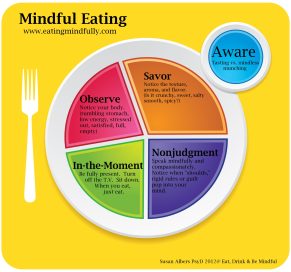

Ayurveda is an ancient holistic healing system that originated in India. According to Ayurveda, there are three main body types or doshas: Vata, Pitta, and Kapha. Each dosha has its unique set of characteristics, and Ayurvedic practitioners believe that different foods and eating habits can help balance each person’s dosha and promote optimal health.
Ayurveda identifies three primary doshas, Vata, Pitta, and Kapha, each of which is associated with a set of characteristics that influence our physical, emotional, and mental health. While everyone has all three doshas, one or two may be dominant, which helps determine their body type.
Vata is associated with the elements of air and space and is characterized by a thin build, dry skin, and tendencies towards anxiety and restlessness.
Pitta is associated with the elements of fire and water and is characterized by a medium build, oily skin, and tendencies towards anger and irritability.
Kapha is associated with the elements of earth and water and is characterized by a larger build, smooth skin, and tendencies towards lethargy and sluggishness.
While this is a simplified overview of the doshas, it gives an idea of how each one can influence our body type and health.

Vata is characterized by cold, dry, and light qualities. To balance Vata, it is recommended to eat warm, cooked foods, and avoid raw foods. Opt for foods that are nourishing and easy to digest, such as soups, stews, and warm grains. Foods that are naturally sweet, sour, and salty are beneficial for Vata, while spicy and bitter foods should be limited.
Pitta is characterized by hot, sharp, and oily qualities. To balance Pitta, it is recommended to eat cooling, soothing foods, such as cucumbers, mint, and coconut water. Avoid spicy or fried foods, as these can aggravate Pitta.
Kapha is characterized by cold, heavy, and oily qualities. To balance Kapha, it is recommended to eat lighter, drier foods, such as beans, lentils, and bitter greens. Avoid heavy, oily foods, as these can exacerbate Kapha. Opt for foods that are naturally pungent, bitter, and astringent.


When you eat according to your dosha, you are nourishing your body in a way that is optimal for your unique constitution. This can help improve digestion, boost energy levels, and promote mental and emotional well-being.
For example, Vata types may experience digestive issues and anxiety if they consume too many raw foods. By eating warm, cooked foods that are easy to digest, Vata types can help soothe their digestive system and promote relaxation.
Pitta types may experience inflammation and heat-related issues if they consume too many spicy or oily foods. By eating cooling, soothing foods, Pitta types can help reduce inflammation and promote balance.
Kapha types may experience sluggishness and weight gain if they consume too many heavy, oily foods.


In addition to following Ayurvedic guidelines for each dosha, Ayurveda also emphasizes the importance of mindful eating. Mindful eating involves paying attention to the present moment and being aware of your food and how it makes you feel. This includes eating in a calm and relaxed environment, taking time to chew your food properly, and avoiding distractions such as TV or your phone while eating.


Another key aspect of Ayurvedic diet is listening to your body’s cues for hunger and fullness. This means eating when you are hungry and stopping when you are full. Overeating or undereating can disrupt the balance of the doshas and lead to digestive discomfort and other health issues. It is also important to pay attention to how your body responds to different foods and adjust your diet accordingly.


Overall, Ayurvedic diet is a holistic approach to eating that focuses on nourishing the body, mind, and spirit. By following Ayurvedic guidelines for each dosha, practicing mindful eating, and listening to your body, you can promote optimal health and well-being. However, it is important to remember.